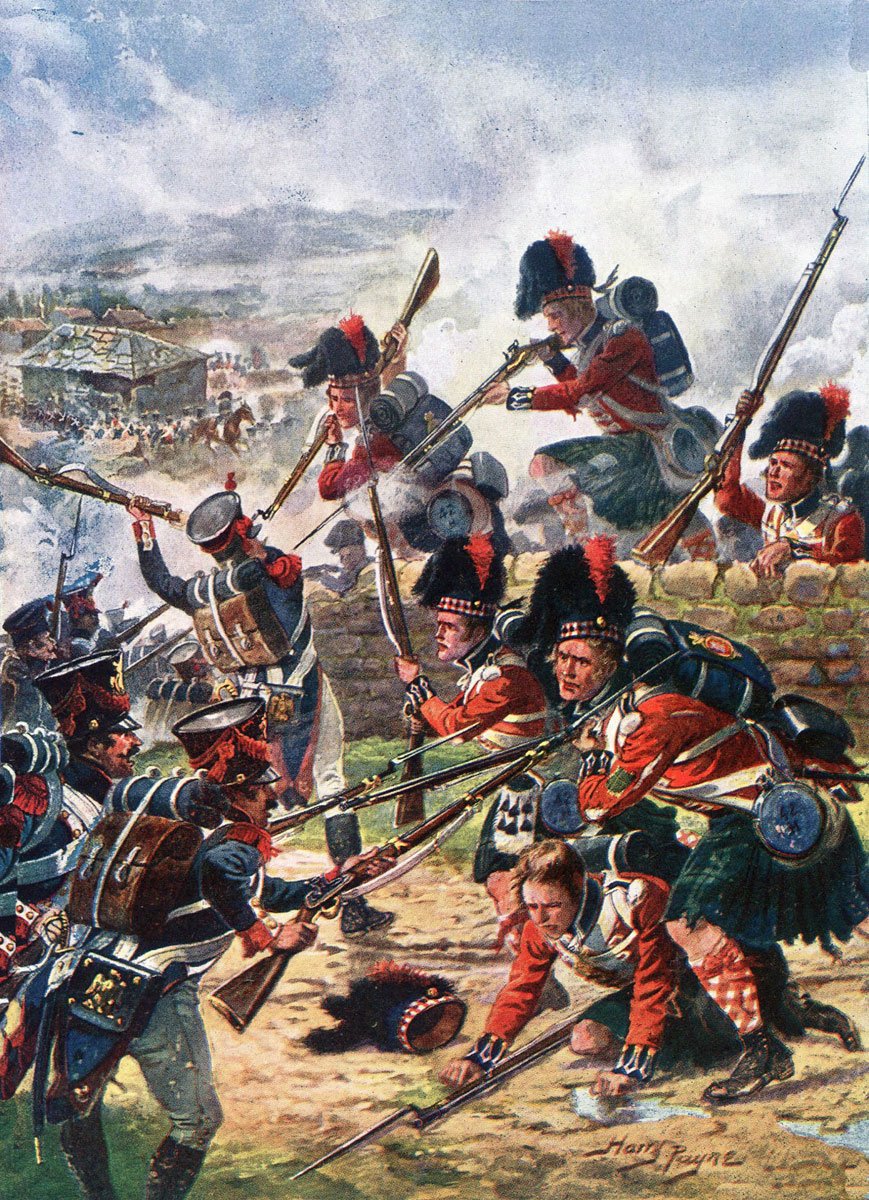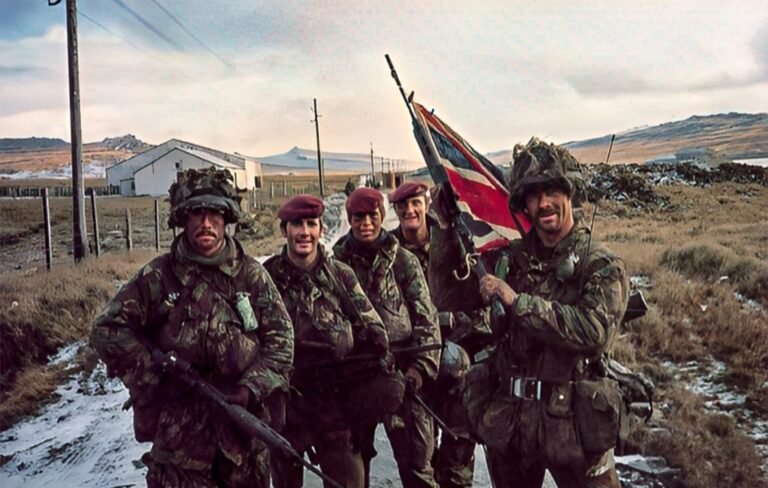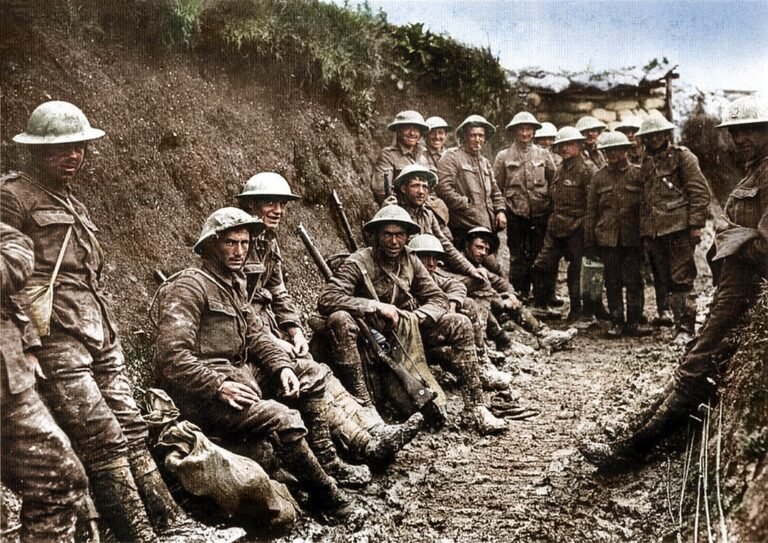The Battle of Corunna was a significant conflict during the Napoleonic Wars. It took place in Spain on January 16, 1809.
This battle saw British forces, led by Sir John Moore, face off against the French army commanded by Marshal Soult. The British were retreating from Spain, hoping to reach safety at Corunna. Their journey was fraught with hardship, facing harsh winter conditions and relentless pursuit by the French.
The battle was marked by fierce fighting and strategic maneuvers. Though the British managed to hold their ground, Sir John Moore was fatally wounded. Despite this loss, the British forces were able to embark on ships, escaping capture and ensuring their survival. The Battle of Corunna remains a testament to resilience and strategy amidst adversity.
Historical Background
The Battle of Corunna, a pivotal moment in the Peninsular War, offers a fascinating glimpse into European history. Understanding its historical background helps us appreciate the complexities of war and the resilience of the human spirit. When you delve into this period, you uncover tales of strategy, bravery, and unexpected turns.
Napoleonic Wars
The Napoleonic Wars were a series of conflicts involving Napoleon Bonaparte’s French Empire and opposing coalitions. These wars reshaped Europe and spread revolutionary ideals. They also paved the way for modern warfare.
During this time, Napoleon sought to expand his empire across Europe. His ambitions led to numerous battles across various fronts. The impact of these wars was felt far and wide, affecting millions.
Have you ever considered how a single leader could influence an entire continent? Napoleon’s strategies and charisma left a lasting mark. Yet, his relentless campaigns also sparked resistance and alliances against him.
Peninsular Campaign
The Peninsular Campaign was a significant phase of the Napoleonic Wars. It took place on the Iberian Peninsula, involving Spain, Portugal, and Britain against France. This campaign was crucial in weakening Napoleon’s forces.
Spain’s rugged terrain presented challenges for the French army. British forces, led by Sir John Moore, played a key role in supporting Spanish resistance. This cooperation demonstrated the power of united fronts in warfare.
Imagine being a soldier amidst this chaos, navigating unfamiliar lands while facing a formidable enemy. The Battle of Corunna was a testament to such courage and determination. It underscored the unpredictability of war and the resilience needed to endure it.
The historical backdrop of the Battle of Corunna invites you to reflect on the human aspects of war. What lessons can we learn from these events? Engaging with history not only informs us but also connects us to the shared experiences of those who came before.
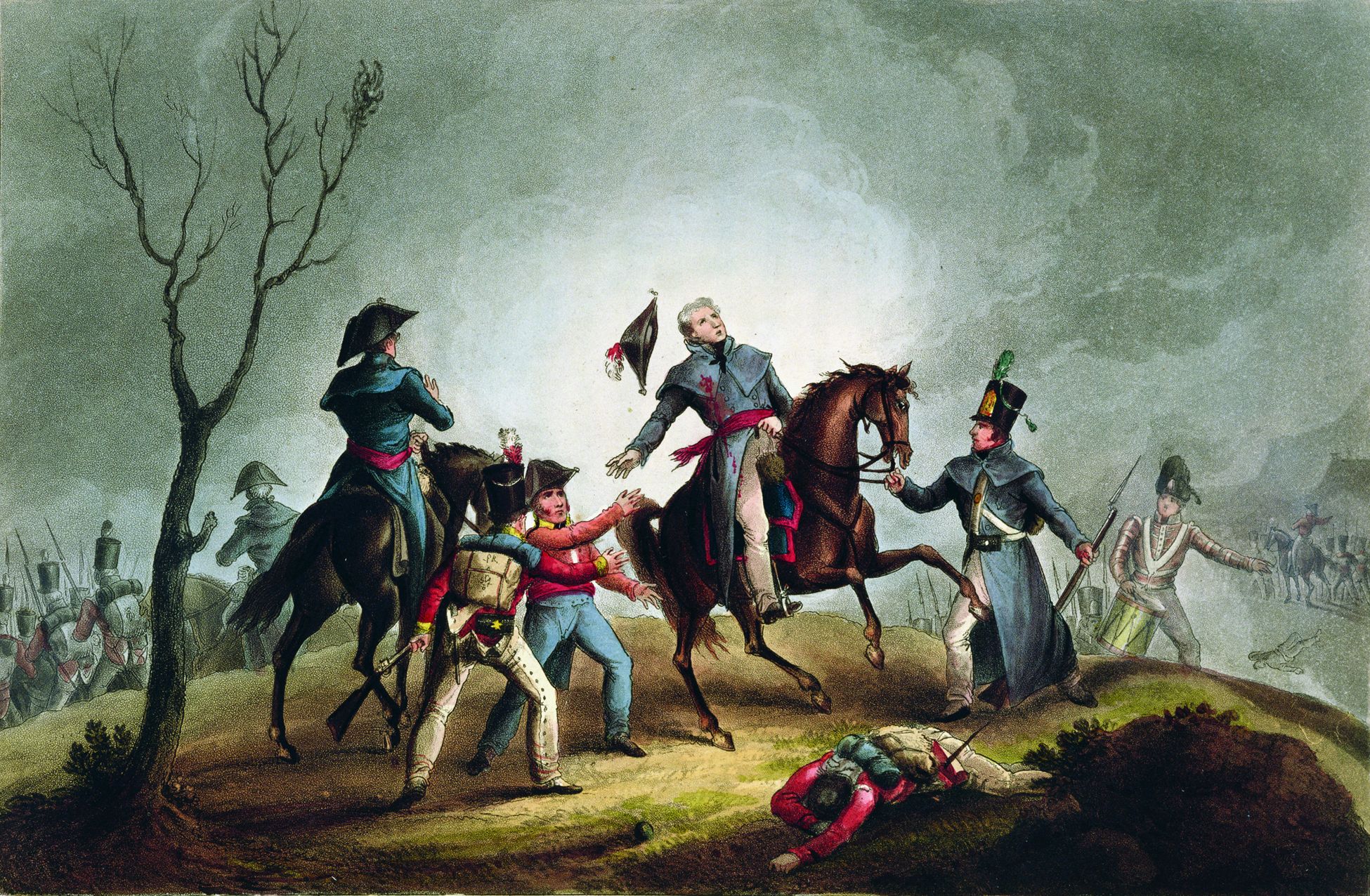
Credit: warfarehistorynetwork.com
Key Players
Key figures in the Battle of Corunna included British General Sir John Moore and French Marshal Nicolas Jean de Dieu Soult. Their strategies and leadership shaped the conflict’s outcome, marking a significant moment in the Peninsular War.
The Battle of Corunna was a pivotal moment during the Peninsular War, showcasing strategic brilliance and courageous leadership. The key players in this battle shaped the course of history through their actions and decisions. Understanding their roles not only provides insight into military strategy but also offers lessons in leadership and resilience.
Sir John Moore
Sir John Moore was a British Army general renowned for his tactical ingenuity and leadership skills. His role at the Battle of Corunna was crucial, as he led the British forces in a strategic retreat from Spain. Moore’s decision-making was swift and decisive, earning him respect among his peers.
Under immense pressure, Moore managed to organize a successful withdrawal to the port of Corunna. This allowed the British troops to evacuate despite being outnumbered. His actions during this retreat exemplified his ability to remain calm and focused in dire situations.
Sadly, Moore was mortally wounded during the battle. His leadership, however, left an indelible mark on military history. Have you ever wondered how you might act under such pressure?
Marshal Soult
Marshal Nicolas Jean-de-Dieu Soult was a prominent French general known for his tactical prowess and determination. At the Battle of Corunna, Soult led the French forces against the British. His goal was to capture or annihilate Moore’s retreating army.
Soult’s pursuit of the British was relentless. He displayed strategic acumen by effectively using his resources to pressure Moore’s forces. Despite his efforts, Soult’s forces were unable to prevent the British evacuation.
His actions at Corunna were both aggressive and strategic, highlighting his commitment to his mission. Soult’s determination begs the question: How far would you go to achieve your objectives?
The Battle of Corunna not only altered the course of the Peninsular War but also showcased the leadership qualities of its key players. Their stories continue to inspire and teach valuable lessons in strategy and resilience.
Prelude To Battle
The Battle of Corunna took place during the Peninsular War. This conflict saw British and French forces clash in Spain. The battle was a crucial moment for the British army. They faced a determined French pursuit. Here, we explore the events leading up to this confrontation.
British Retreat
The British army, led by Sir John Moore, was in a tough spot. They had marched deep into Spain. Their goal was to support Spanish allies against the French. But the situation changed quickly. French forces, under Marshal Soult, moved aggressively. Moore realized his troops were at risk. He decided to retreat towards Corunna. The journey was harsh. Winter weather made conditions worse. Soldiers marched through snow and rain. Supplies were low. Morale was sinking. The retreat was a race against time.
French Pursuit
Marshal Soult’s forces were relentless. They pursued the British with speed and determination. French troops were experienced and well-organized. They aimed to catch Moore’s army before it could escape. The French hoped to deliver a decisive blow. Along the way, they engaged the British in several skirmishes. These small battles tested the resolve of Moore’s men. Still, the British managed to hold their ground. Each step brought them closer to Corunna. The French pursuit added immense pressure. It was a tense and dangerous chase. Both sides knew that a major battle was imminent.

Credit: the-past.com
Strategic Importance
The Battle of Corunna held strategic importance during the Peninsular War. It helped the British Army secure a safe retreat from Napoleon’s forces. This battle ensured the survival of British troops for future engagements.
The Battle of Corunna was not just another clash in the Napoleonic Wars; it held significant strategic importance that shaped the course of the conflict. Understanding why this battle was critical requires a look at its geographical location and the military objectives involved. Let’s uncover how these elements played a pivotal role.
Geographical Location
The Battle of Corunna took place in northwestern Spain, near the coast. This location was vital because it provided access to the Atlantic Ocean, enabling supply lines for British forces. Imagine being a soldier in 1809, reliant on reinforcements and supplies arriving by sea. The port of Corunna was a lifeline for the British army.
Being near the coast also allowed for a strategic retreat. In military terms, having an escape route can be the difference between survival and annihilation. The rugged terrain around Corunna, with its hills and valleys, offered natural defenses. It’s like playing chess—positioning is everything.
How do you feel about the role of geography in battles? It’s fascinating how the landscape can influence history.
Military Objectives
The British aimed to evacuate their troops safely while inflicting damage on the French forces. This dual objective was ambitious yet necessary. Securing Corunna meant ensuring the safe withdrawal of the British army to fight another day.
For the French, capturing the British army was a chance to weaken their adversary significantly. Imagine the pressure on both sides—one fighting to escape, the other to capture. The stakes were high, and the outcome would have rippling effects on the war’s progression.
Think about it: What would you prioritize in such a high-stakes scenario?
The decisions made during the Battle of Corunna were not only about immediate gains. They were about long-term strategic positioning in the broader context of the war. Every move was calculated, with future implications in mind.
Reflecting on these objectives, you can see how strategy is not just about immediate wins but also about shaping future battles. What lessons can we draw from these strategic decisions in our own lives?
Battle Day Events
Commemorating the Battle of Corunna, Battle Day Events showcase historical reenactments and educational activities. Engage with history through interactive exhibits and storytelling sessions. Experience the vibrant spirit of this pivotal moment in time.
The Battle of Corunna, fought on January 16, 1809, was a pivotal moment in the Peninsular War. On this day, British forces, led by Sir John Moore, faced the advancing French army under Marshal Soult. The battle was marked by strategic maneuvers, intense fighting, and personal stories of bravery. As you dive into the events of that day, you’ll find tales of courage and tactical brilliance.
Initial Skirmishes
The day began with a series of initial skirmishes. British and French forces tested each other’s strengths with light infantry exchanges. These encounters revealed the resolve of both armies.
British soldiers, weary from their retreat across Spain, found renewed energy. The French, eager to capitalize on their numerical advantage, pressed forward. It was a test of endurance and morale.
Imagine standing on that battlefield, hearing the first shots echo through the cold morning air. The tension was palpable. You could sense that something monumental was about to unfold.
Main Engagement
As the day progressed, the main engagement commenced. British forces took defensive positions on the heights overlooking Corunna. This strategic choice was crucial.
The French launched a vigorous assault, determined to break the British lines. The clash was fierce, with cannon fire and musket volleys echoing across the field. It was a battle of wits as much as weapons.
Have you ever been in a situation where every decision mattered? Sir John Moore faced this as he directed his men with precision. His leadership inspired his troops, even as he paid the ultimate price.
The Battle of Corunna’s main engagement was not just about military tactics. It was about determination, leadership, and sacrifice. What lessons can you draw from such historical events? They remind us that even in adversity, the human spirit can triumph.
Tactics And Strategies
The Battle of Corunna, fought in January 1809, was a pivotal moment in the Peninsular War. This conflict between the British and French forces was marked by strategic maneuvers and tactical brilliance. Understanding these tactics sheds light on the military prowess displayed during this historic battle.
British Defensive Tactics
The British army, led by Sir John Moore, faced the challenge of defending against a larger French force. Moore’s strategy focused on positioning his troops effectively. He chose high ground to gain an advantage. This elevated position provided better visibility and protection. Defensive lines were drawn to maximize firepower. Troops were organized in compact formations. This setup ensured a concentrated defense against French advances.
Moore’s use of artillery was crucial. Cannons were strategically placed to cover key points. This helped disrupt French formations. The British infantry held firm under pressure. Their discipline and determination were vital. These tactics allowed the British to withstand French attacks.
French Offensive Moves
Marshal Soult led the French forces with aggressive tactics. His strategy aimed to overwhelm the British defenses. French troops advanced in columns, displaying strength and coordination. These formations were designed to break through enemy lines. Soult’s forces attacked relentlessly, seeking weak points.
French artillery played a significant role. Cannons were used to bombard British positions. This created confusion and opened opportunities for infantry. Cavalry charges were employed to exploit gaps. These moves aimed to encircle British forces.
Despite their determination, the French faced challenges. The rugged terrain and weather conditions hampered their progress. These factors contributed to the complexity of their offensive strategy.
Aftermath And Consequences
The Battle of Corunna was a pivotal event in the Peninsular War. The battle’s aftermath shaped the course of history. Both armies faced significant changes. The British and French forces had to adapt. The consequences were far-reaching and impacted future strategies.
British Evacuation
After the battle, the British army retreated to ships. They faced harsh weather and a difficult journey. Many soldiers were exhausted and wounded. The evacuation marked the end of their campaign in Spain. British troops felt a sense of loss and defeat. The evacuation was a strategic necessity. It ensured the survival of the army.
French Gains
Napoleon’s army seized control of Corunna. This victory boosted French morale. They gained valuable territory in Spain. The French saw this as a triumph. It reinforced their dominance in the region. The gains allowed them to strengthen their positions. French forces prepared for future engagements with renewed confidence.
Legacy Of The Battle
The Battle of Corunna left a significant mark on history. This pivotal clash during the Peninsular War is remembered for its strategic implications. The battle showcased the courage and resilience of the British forces. It also set the stage for future military engagements against Napoleon. The legacies of Corunna extend beyond the battlefield, influencing both military tactics and national morale.
Impact On Napoleonic Wars
The Battle of Corunna affected the broader Napoleonic Wars. It forced Napoleon to divert resources and attention. This diversion weakened his hold in Spain. The British retreat, though a tactical withdrawal, demonstrated their tenacity. Their resilience was a morale booster for allies opposing Napoleon. Corunna delayed French plans and exposed vulnerabilities. This delay allowed other European coalitions to regroup and counter French advances.
Sir John Moore’s Legacy
Sir John Moore’s leadership during the battle is legendary. His strategic decisions during the retreat were crucial. Moore’s sacrifice at Corunna became a symbol of bravery. He inspired future generations of military leaders. His tactics are still studied in military academies today. Moore’s legacy is not just of a soldier, but a strategist. His actions at Corunna showed the importance of leadership under pressure.
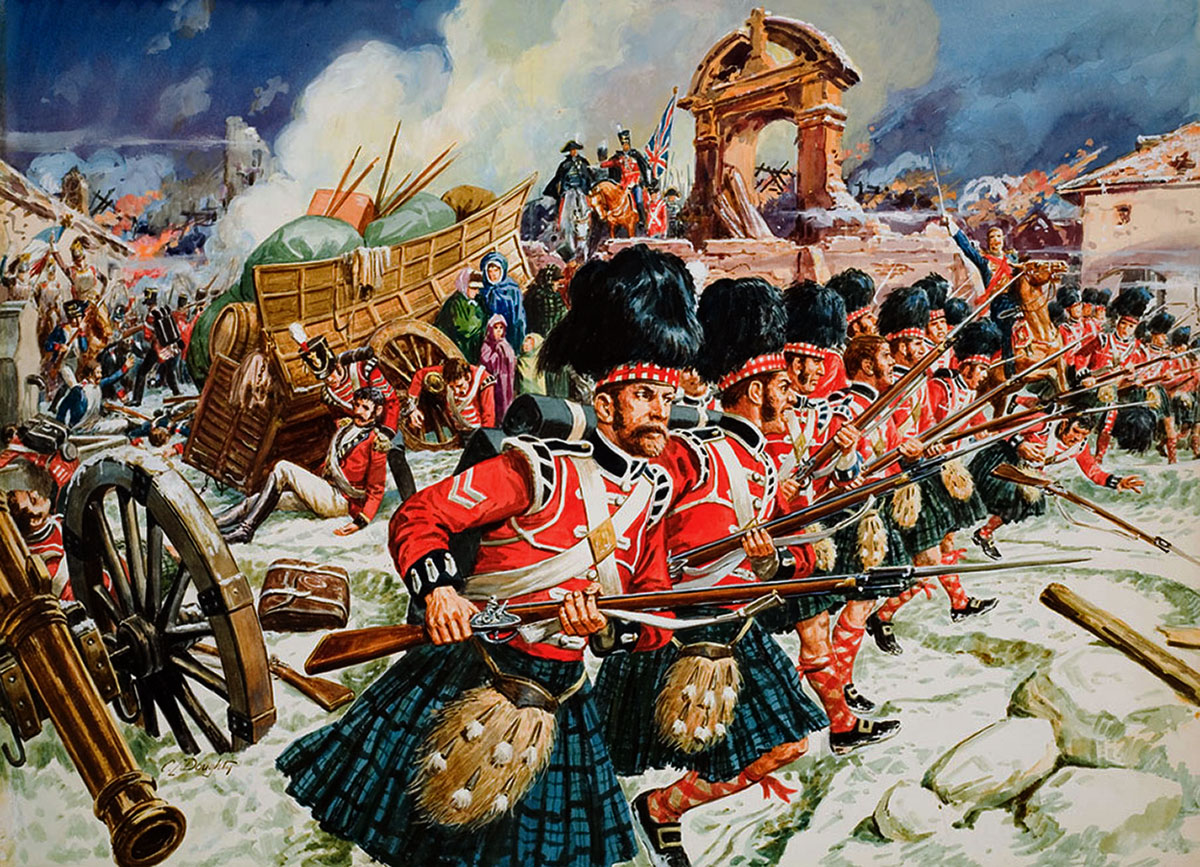
Credit: www.britishbattles.com
FAQs
Who Won The Battle Of Corunna?
The British won the Battle of Corunna. This battle took place on January 16, 1809. Sir John Moore led the British forces to victory against the French. The battle marked a strategic retreat during the Peninsular War. Moore died during the battle but secured a safe evacuation for his troops.
What Happened In Corunna?
The Battle of Corunna occurred during the Peninsular War in January 1809. British troops under Sir John Moore fought against Napoleon’s forces. Moore was killed, but British forces managed a successful retreat to safety. The battle was significant in delaying Napoleon’s campaign in Spain.
How Many People Died In The Battle Of Corunna?
The Battle of Corunna resulted in approximately 900 British and 600 French casualties. The conflict took place in 1809 during the Peninsular War. British forces, led by Sir John Moore, aimed to secure a retreat to the sea, which they successfully achieved despite the losses.
What Happened At The Battle Of Newport?
The Battle of Newport, fought in August 1778, was a significant American Revolutionary War clash. American and French forces attempted to recapture Newport, Rhode Island, from the British. The battle ended inconclusively, with both sides suffering casualties and withdrawing. The British maintained control of Newport after the battle.
Conclusion
The Battle of Corunna showed bravery and sacrifice. Soldiers fought with great courage. The event changed history and taught important lessons. It remains a significant part of military history. Remembering this battle helps us honor those who served. History holds many stories like this one.
Keep exploring and learning from the past. Each story has its own lessons and inspirations. Stay curious and informed about history’s rich tapestry.

